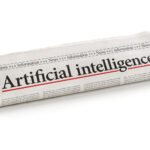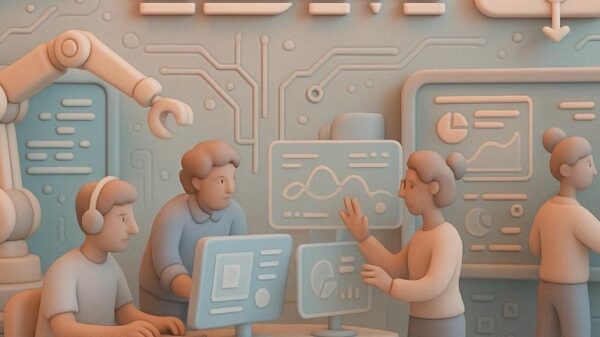The integration of artificial intelligence (AI) into various sectors has led to significant transformations, particularly in the realm of medical education. A recent article by Parente et al. highlights how AI is redefining teaching methodologies, assessment techniques, and overall learning experiences for future healthcare professionals. This evolution reflects a broader shift not only in technology but also in the training approaches for the next generation of medical practitioners.
AI tools are fundamentally changing the interactions between students and educators, fostering a more personalized approach to learning. Advanced applications, such as intelligent tutoring systems and simulation-based learning environments, are revolutionizing traditional educational frameworks. The growing sophistication of data analysis empowers educators to tailor learning experiences to individual students’ needs, resulting in enhanced engagement and improved retention of crucial medical knowledge.
Emerging Trends in Medical Assessments
One of the significant trends identified by Parente and colleagues is the increasing reliance on computer-based assessments and automated grading systems. These innovations not only streamline the evaluation of student performance but also provide timely feedback, a critical component for effective learning. By reducing the time educators spend on grading, instructors can focus more on mentoring and refining pedagogical strategies, which ultimately enhances student learning outcomes.
Furthermore, AI is playing a crucial role in the acquisition of clinical skills through augmented reality (AR) and virtual reality (VR)
As AI becomes more integrated into medical education, ethical considerations are gaining attention. Issues like bias, equity, and privacy are emerging as pressing concerns. Parente et al. emphasize the need for ongoing discussions regarding the ethical implications of adopting AI-driven tools. Neglecting these concerns may result in disparities in learning opportunities and outcomes, highlighting the importance of an ethically informed approach to AI in medical curricula. Moreover, understanding the underlying mechanics of AI technologies is becoming increasingly vital for future physicians. Familiarity with AI algorithms and their applications in healthcare will empower graduates to critique, innovate, and navigate the technological advancements that will shape their careers. Therefore, incorporating AI education into medical training is essential for preparing students for the complexities of modern medical practice. International collaboration is also pivotal in adapting AI tools within medical education. Institutions around the world are sharing best practices and leveraging their strengths to develop a comprehensive understanding of AI trends. This collective knowledge-sharing promotes a robust and agile response to AI integration, accommodating diverse perspectives and cultural contexts. Despite the numerous advantages of AI in medical education, challenges remain. The technological infrastructure necessary for deploying advanced AI tools can be financially burdensome, especially for under-resourced institutions. Such disparities could widen existing inequalities in medical training and access to advanced educational resources. It is crucial for stakeholders to tackle these barriers, ensuring that the integration of AI does not exacerbate inequalities between privileged and marginalized educational settings. The future trajectory of AI in medical education promises further advancements, from enhanced instructional design to predictive analytics for student performance. Continuous research, such as that conducted by Parente et al., will be vital for monitoring these trends and providing a framework for effective integration. This will ensure that educational institutions remain responsive to technological innovations. Ultimately, the evolving relationship between AI and medical education highlights the transformative potential of technology in shaping the healthcare landscape. The ongoing discourse surrounding AI integration underscores its capabilities and limitations, emphasizing the need for a collaborative, ethical, and informed approach to education. As the AI landscape continues to evolve, embracing the possibilities it presents will be essential for advancing both medical education and patient care. Subject of Research: Temporal trends of artificial intelligence in medical education.Ethical Considerations and Collaborative Learning
Addressing Challenges and Future Directions
Article Title: Temporal trends of artificial intelligence in medical education: a global perspective.
Article References: Parente, S.B.M., Rocha, S.S., Moreira, M.R. et al. Temporal trends of artificial intelligence in medical education: a global perspective. Discov Artif Intell 5, 337 (2025). https://doi.org/10.1007/s44163-025-00609-x Nigerian Schools Must Integrate AI in Curriculum to Enhance Learning and Teaching Efficiency
Nigerian Schools Must Integrate AI in Curriculum to Enhance Learning and Teaching Efficiency Google Scholar Labs Launches AI-Powered Research Tool for Enhanced Academic Insights
Google Scholar Labs Launches AI-Powered Research Tool for Enhanced Academic Insights AI Enhances Nigeria’s Higher Education: Study Reveals Personalized Learning and Efficiency Gains
AI Enhances Nigeria’s Higher Education: Study Reveals Personalized Learning and Efficiency Gains WSU Secures $82,500 from Microsoft to Develop AI Strategies for Rural Schools
WSU Secures $82,500 from Microsoft to Develop AI Strategies for Rural Schools University of Iowa Launches AI Certificate Program Amid Growing Concerns Over Education Integrity
University of Iowa Launches AI Certificate Program Amid Growing Concerns Over Education Integrity







































































